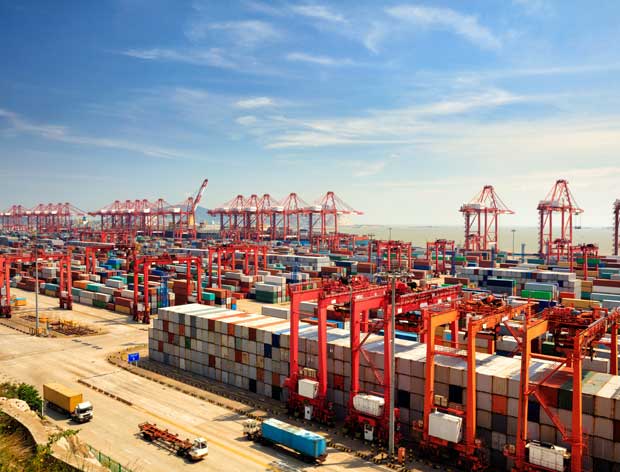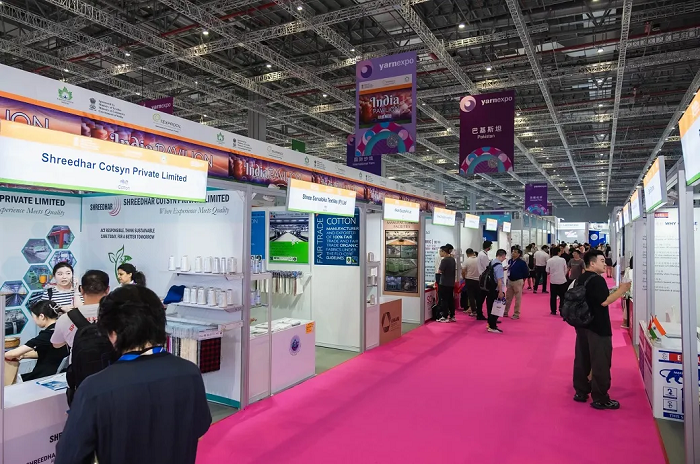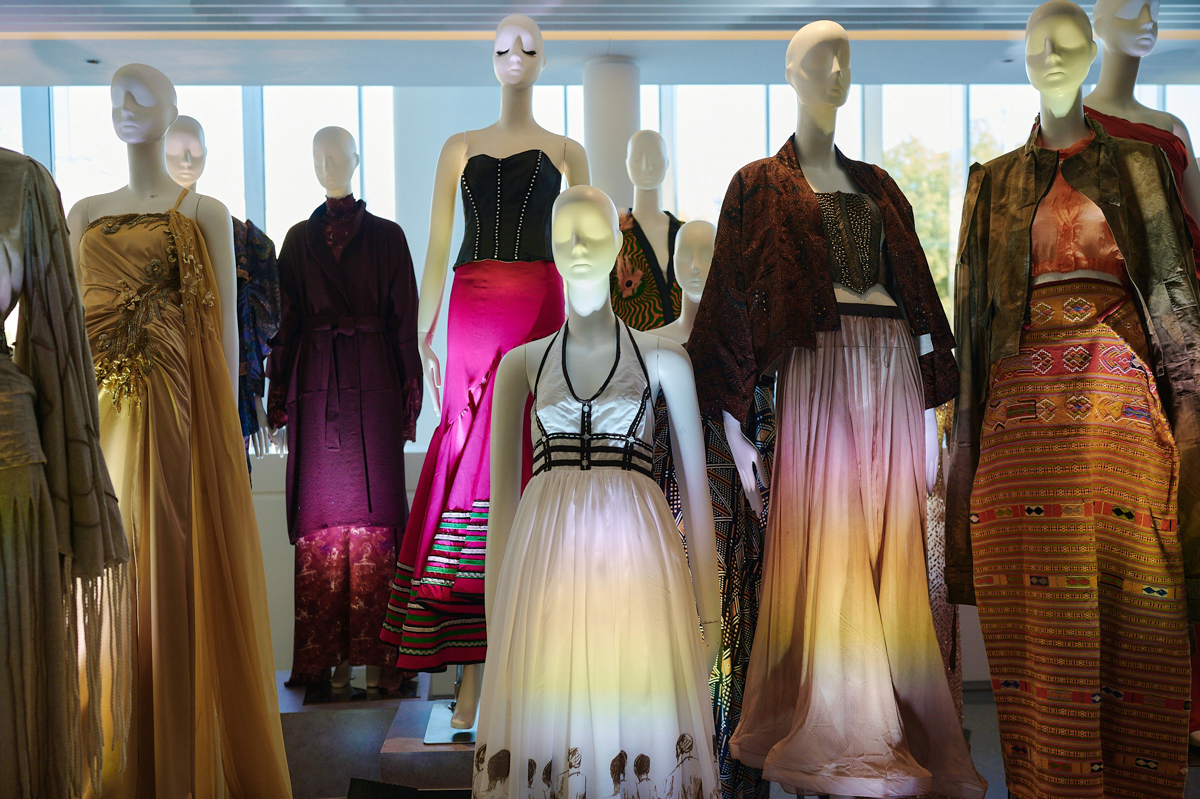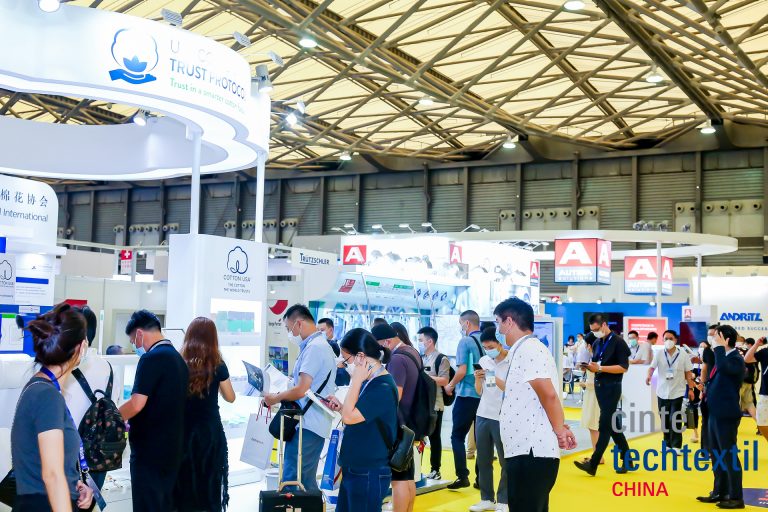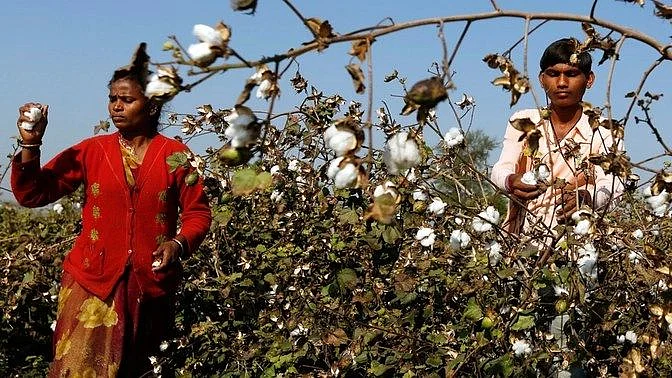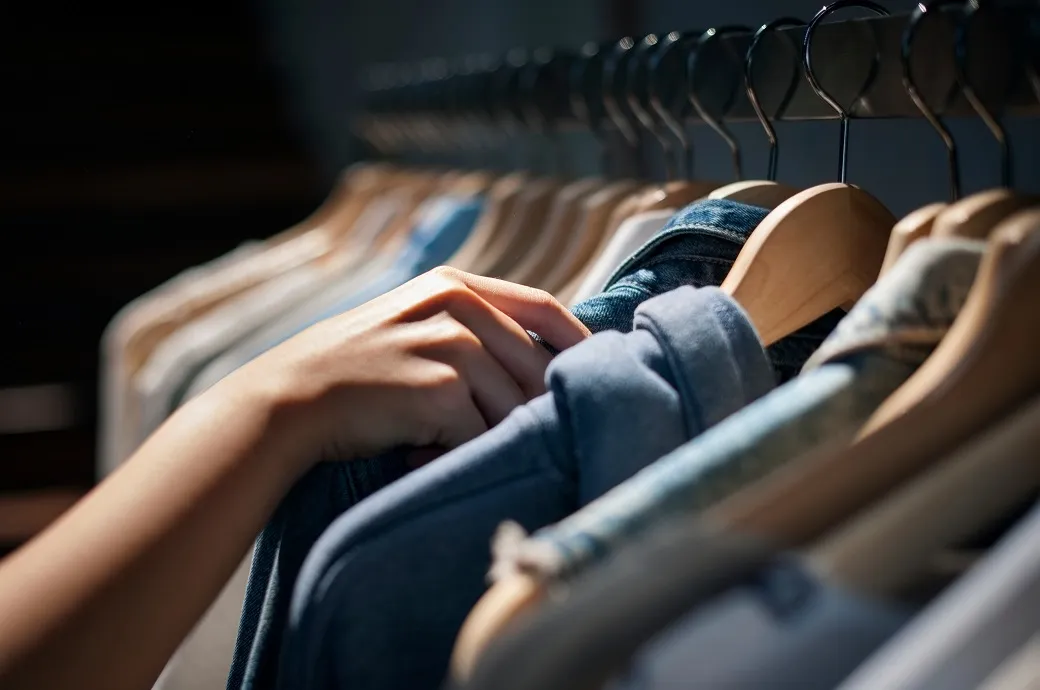From futuristic denim technology brands like e-indigo, chrome chord, hybrid chinos to handloom ones like ikat — denim is witnessing a revolution in terms of design aesthetics and accessibility to cater to the evolving mentality of customers.
A wash trend collection has been developed at Arvind Denim Lab using eco-friendly technologies and processes. E-indigo, an innovative line, uses a new indigo dyeing technology, which is not only substantially more sustainable compared with traditional dyeing techniques, it also imparts a fresh appeal to the finished product.
Levi Strauss has devised a new operating model that ushers denim finishing into the digital era. Project FLX (future-led execution) digitizes denim finish design and enables a responsive and sustainable supply chain at an unparalleled scale. By replacing manual techniques and automating the jeans finishing process, Project FLX radically reduces time to market — and eliminates thousands of chemical formulations from jeans finishing.
Using this method Levi Strauss can replace manual techniques and automate the time-consuming, labor-intensive and chemical-reliant process of hand-finishing. By using lasers in new ways, finishing time is cut dramatically – from two to three pairs per hour to 90 seconds per garment, followed by a final wash cycle. Levi Strauss has begun piloting Project FLX with select vendors and retail partners and will roll it out across its supply chain in a phased approach over the next two years.
"Manchester used to be the hub of Britain’s textile trade even before it became a hub for fast fashion. Boohoo, Missguided and In The Style are just some of e-tailers headquartered there today but at the time of the Industrial Revolution, the city’s red-brick buildings were home to cotton mills. Like every country, mills started shutting down one after another as retailers found cheaper alternatives to British cotton in India and China."

Manchester used to be the hub of Britain’s textile trade even before it became a hub for fast fashion. Boohoo, Missguided and In The Style are just some of e-tailers headquartered there today but at the time of the Industrial Revolution, the city’s red-brick buildings were home to cotton mills. Like every country, mills started shutting down one after another as retailers found cheaper alternatives to British cotton in India and China. The last mills closed its doors in early 1980s but after years of absence, cotton spinning has now returned to Manchester.
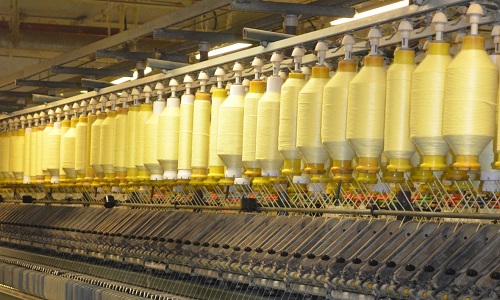
Following a £5.8 million investment – £2.8 million of its own investment, £2 million from the Greater Manchester Combined Authority’s investment fund and £1million from the government’s Textiles Growth Fund – technical textiles company Culimeta-Saveguard launched English Fine Cottons in 2015. Test production at its Dunkinfield mill started in July 2016 and in last December, it opened for business. Tracy Hawkins, Business Development Manager, Dunkinfield says while they didn’t start the factory with the intent to revive the UK textile industry, a lot of thought went into opening the mill and they thought it was a good investment because of changes in the market. The project came to fruition just before Brexit. Retailers are worrying about the cost of bringing in raw goods from overseas while exchange rate is another concern. The exchange rate works in their favour when they are selling abroad and there are a lot of international markets, particularly Japan, that are interested in British heritage and quality.
Growing cotton production
The campaign ‘Make it British’ found average production was up 25 per cent and half of the 100 fashion and textile manufacturers surveyed recoded a turnover increase in 2017 compared to 2016. However, Britain’s decision to leave the European Union could provide a further boost. Kate Hills, a former buyer for Marks & Spencer and Burberry and founder, Make it British, says Brexit is an opportunity for textiles reshoring. Locally sourced yarn means retailers aren’t at the mercy of currency fluctuations or economic disasters in cotton-sourcing countries, and everyone is looking for less trouble in their supply chain. However, the biggest challenge is still finding the right skills. Hawkins points out it is the quality of the mills’ cotton, rather than speed to market, that proved to be the biggest draw for brands and retailers.
Data suggests there are opportunities for British textiles but there is still a long way to go before the scale of the industry can match up to its counterparts. Currency swings and the opportunity to have a stronger grip on supply chains make UK textiles tempting for retailers but higher prices, skills gaps and the industry’s small scale are still posing problems.
Faced with fierce online competition from the likes of Amazon affordable fashion giants Zara and Hennes & Mauritz AB (H&M) are shoring up their defenses, trying to use their stores to boost Internet sales. Separated by thin partitions, 15 little photography studios are used exclusively to update the Web site line-up in a corner of Zara’s huge headquarters near Corunna in Spain’s northwest.
Under a constant barrage of camera flashes, models strike pose after pose to get seven photos showing the piece of clothing under all angles. In total, 1,500 photos are put online twice a week to match the speed at which articles of clothing are replaced in-store.
Last year, these represented 10 per cent of sales, a figure unveiled last week after years of secrecy over a crucial sector that Inditex only entered in 2010, on the late side. Gaining more visibility online was the main challenge for Inditex if it wants to remain competitive in the long term, says IG Markets analyst Sergio Avila Luengo. The retail giant started having trouble clearing stocks for the first time last year due to competition from Amazon.
On its part, Sweden’s H&M has recognized that a drop in profits last year was due in large part to online competition. Faced with this threat, H&M devoted 45 per cent of its investment to Internet sales last year, or about €600 million, for a new photography studio and personalized apps for its clients.
Inditex has opened 19 warehouses in the world dedicated to online sales. H&M is soon to follow suit. Both are also taking advantage of their thousands of stores, including for client delivery. Both groups are implementing systems to avoid missing out on a sale if for instance the size is not available for a customer, by pointing the customer to the item online. Their strategy was to combine both sales methods, says Gildas Minvielle, head of the economic observatory at the French Fashion Institute.
A two-day World Trade Organization (WTO) informal ministerial meeting is being held in India. The objective of the ministerial meeting is to facilitate an informal and frank exchange of views on the agenda for negotiations at the WTO as well as institutional issues. Participants could also discuss any other theme of common interest to all members.
India seeks guidance on the future of the multilateral trading system amid attempts by the US to undermine WTO rules, raising fears of trade wars. The decision of the US to raise tariffs on steel and aluminium beyond its commitment under the WTO on the grounds of security is expected to dominate discussions at the meeting.
India has termed the move discriminatory and demanded an exclusion as granted to key allies of the US such as Canada and Mexico, while the European Union has threatened to retaliate by hiking tariffs on a set of goods it imports from the US. The US has started systematically undermining the WTO. The rules-based system that drives WTO through the dispute settlement mechanism is now being threatened by the US.
The US wants to go back to the pre-WTO system where abiding by a verdict of the dispute settlement mechanism was not binding and the winning country had to sit down and negotiate with the losing party, which could end up giving more powers to large developed countries to arm-twist their small economic partners.
Uzbekistan wants to be part of the World Trade Organization (WTO). In this regard, the country is implementing a number of measures. The competitiveness of domestic enterprises will be enhanced as will be their technical and technological potential. To avoid the negative consequences from Uzbekistan’s accession to the WTO, this process is planned to be implemented on a comprehensive assessment basis for the readiness of certain sectors of the economy, various groups of domestic commodity producers and the conformity of the state regulation mechanisms used.
To strengthen the country’s position in the negotiation process on accession to the WTO, and to ensure the protection of sensitive sectors of the economy, such as the textile, food, automotive and agriculture sectors, customs duties rates will be adjusted.
The package of measures also implies institutional reforms, the development of an international legal framework on a bilateral and multilateral basis, improvement of national legislation with further liberalization of the foreign trade regime and consistent harmonization with international norms and rules of the World Trade Organization.
The procedure for joining the WTO consists of several stages. This is a long process that can take several years. There are 164 members of the World Trade Organization. That's 84 per cent of the 196 countries in the world. The WTO covers more than 94 per cent of the total volume of commodity flows.
US businesses want their country to drop the idea of slapping tariffs on Chinese imports. They say the tariffs would trigger a chain reaction of negative consequences for the US economy, provoking retaliation, stifling US agriculture, goods, and services exports and raising costs for businesses and consumers.
They say the way to respond to unfair Chinese practices and policies is not by imposing tariffs or other measures that will harm US companies, workers, farmers, ranchers, consumers, and investors.
The trade groups represent everything from the high-tech industry to apparel vendors, agribusiness and auto parts importers, companies such as Apple, Alphabet - the parent company of Google - Walmart and Nike. US officials have been urged to work with like-minded partners to address common concerns with China's trade and investment policies. Unilateral US tariffs would only serve to split the United States from its allies, hinder joint action to effectively address shared challenges, and ensure that foreign companies take the place of markets that American companies, farmers and ranchers must vacate when China retaliates.
The United States has long accused China of forcing US companies to turn over proprietary commercial information and intellectual property as a condition of operating in China.
Multi-stage and different tax slabs are affecting the Indian manmade fiber sector. In the international market Indian manmade sector is expensive by five to eight per cent compared to East Asian countries, mainly because of multi-level taxes that are not fully rebated and high interest rates.
The sector saw almost nine per cent per annum growth in the domestic market but exports have stagnated for the last couple of years. Accumulated credit under GST from raw materials and capital goods investments are affecting the industry and blocking investments. Though the actual production cost for the manmade fiber sector is lower compared to China, India is not competitive because of taxes.
India can capture the space vacated by China in the international textile market by focusing on manmade fibers. Synthetic textiles made from manmade fiber account for 70 per cent of the world textile supply. Contrary to the global trend, cotton still commands more than 50 per cent of India’s textile production.
India is already reeling under a huge competitive disadvantage in the international textile market when it comes to manmade fiber based textile products. Competitors like China, Vietnam and Bangladesh are ahead in global exports of manmade fibers.
Kering, a French luxury goods group has fulfilled its tax obligations in Switzerland. It stated that the company used a Swiss-based scheme to evade taxes on earnings from brands such as Gucci and Yves Saint Laurent. Kering had saved on taxes it should have paid in countries such as Italy by billing some business carried out elsewhere to a Swiss site as per France's Mediapart and Germany's Der Spiegel.
Mediapart, which cited documents linked to an Italian tax investigation, says that it estimated that since 2002 Kering had saved 2.5 billion euros (2.20 billion pounds) in tax in this manner. Kering says all its companies there carried out tangible business activities its Swiss businesses, home to more than 600 employees, were an important part of its inventory management, billing and supply chain logistics and that their activities were directly linked to its brands. The group pays its due taxes in Switzerland, in compliance with the law and the fiscal status of the company. This business operating model is known by French and other competent tax authorities, says Kering in a statement.
The bulk of the allegations are centred on Italian fashion brand Gucci, which is subject to a tax investigation by prosecutors in Milan. Police raided Gucci offices in Milan and Florence late last year. The group run by French billionaire Francois-Henri Pinault, scion of Kering's founding family, stated it had yet to set aside funds linked to the investigation. No specific provision was recorded in 2017 as the related tax risk cannot be measured reliably at this point in the proceedings.
Pakistan aims to boost cotton production and increase its cultivation area by 45 per cent by 2025. Research funding will be provided and cotton research will be revitalized. Partnerships may be initiated for variety development and marketing. The Seed Act and the Plant Breeder Rights Act may be implemented. Sub-standard cotton seed and BT cotton varieties may be regulated. The cotton sector may be regulated by rationalizing over 700 seed companies and disallowing cotton imports during the cotton picking season.
Spinning and ginning may be improved through better technology, shifting of the current weight based pricing to a quality based system, and bale labeling by ginners showing quality features. The existing excessive incentives for sugarcane may be rationalized by replacing its current pricing mechanism with a new plan linking sugarcane price to the wholesale price of sugar in order to ensure a level playing field for all commodities.
Cotton production in Pakistan has faced virtual stagnation since 1991-92. Reasons include the use of inappropriate first generation, rather than fourth generation BT technology, absence of quality seeds and the low quality of ginning. There has been a 20 per cent decrease in cotton area between 2004 and 2016. However, cotton consumption has made Pakistan a net importer of cotton.
Three-day Asia Fashion Fair (AFF) will be held in Japan from April 10 to 12, 2018. This is Japan’s biggest event for original equipment manufacturers and original design manufacturers in the textile and garment industry. The expo has been widely recognized and highly praised by global industry players. The show will be attended by 323 exhibitors, including 258 ready-to-wear manufacturers, 27 fashion accessories companies, 20 fabrics suppliers, 14 home textiles producers, three auxiliary materials makers and one samples supplier, with many of the exhibitors originating from Bangladesh, Cambodia, China, Japan, Laos, Myanmar, Pakistan, the US and Vietnam.
Exhibits will be grouped together in zones according to the exhibitor's specialty, with zones for knitting, tatting, Southeast Asian factories, fabrics and auxiliary materials, home textiles, ODMs, furs and down, underwear, children's wear as well as fashion accessories. Most exhibitors have longstanding trade relationships with Japan and are able to address demands in terms of original equipment, original design, quality, limited quantities and low cost.
AFF has brought together more than 3,000 exhibitors from China and over 1,00,000 buyers over the past 15 years. This is a biannual event which debuted in 2003 and which holds its spring edition and autumn edition each year.
- 1
- 2
- 3
- 4
- 5
- 6
- 7
- 8
- 9
- 10
Global supply chains scramble in 2025 as US tariffs drive frontloading and sourc…
Year 2025 has seen the global textile and apparel industry facing unprecedented volatility, largely because of the unpredictable US tariff... Read more
Yarn Expo Autumn 2025 to be the ‘Most Comprehensive Edition Yet’
Asia’s premier platform for the yarn and fiber industry, Yarn Expo Autumn will commence on September 2, 2025, at the... Read more
'The BRICS+ Fashion Summit & MSF: A New Era for Global Fashion
The global economic landscape is undergoing a dramatic shift, with the BRICS+ bloc leading the charge. With combined purchasing power... Read more
Made in America? Tariffs fail to spark a comeback in US apparel
The American fashion industry finds itself at a crossroads. What began as an attempt to ‘reshore’ production through punitive tariffs... Read more
Cinte Techtextil China: Connecting Global Markets with Leading Innovations
Cinte Techtextil China is set to be a dynamic industry event in Shanghai, poised to bridge the gap between Asian... Read more
Cotton at a Crossroads: Geopolitics, trade shifts, and the global balancing act
The global cotton market in 2025 is passing through a period of shifting trade relationships, geopolitical tensions, and the rising... Read more
German textile and fashion industry grapples with persistent economic headwinds
The German textile and fashion industry continues to pass through a challenging economic situation. An anticipated recovery remains elusive amidst... Read more
French consumers blinded by fast fashion's allure: Study
A recent study on French consumer habits in the fashion industry throws up a concerning picture, suggesting that the allure... Read more
The great retail shift in the US, private labels emerge as new brand leaders
Once a humble alternative for budget-conscious shoppers, private labels often called store brands have stealthily evolved into a commanding force... Read more
Indian textile sector braces for increased Chinese imports amid diplomatic thaw
Following high-level diplomatic engagements between Indian External Affairs Minister S. Jaishankar and Chinese Foreign Minister Wang Yi, a new chapter... Read more

